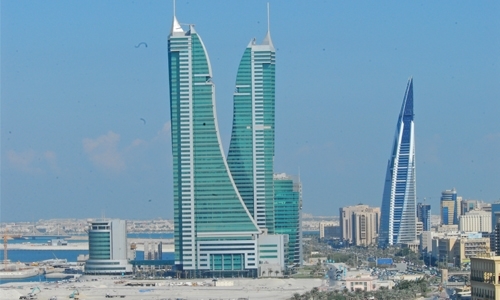Bahrain’s Resiliency
In 2001, HM King Hamad introduced far-reaching reforms aiming at the reinvigoration of democracy in Bahrain.
Upon gaining its autonomy in the 1970s, Bahrain struggled with security issues amid the rise of Islamism in the region. Unrest led the government to enact a state security law in a bid to maintain order and allow the people to devote their time, efforts and energy to the building of a robust and prosperous nation.
The law was rejected by the elected members in parliament. Yet a revolution on the opposite shore of the Gulf has led voices to call for joining an Islamic movement similar to the one happening there.
The alarming developments threatened Bahrain’s sovereignty, security and drive to build a successful nation, and the monarch, back then, and in line with his prerogatives, decided to freeze the parliament’s role and to tighten security measures.
The decision was later applauded as very wise since Bahrain continued to grow economically and became the financial hub of the Middle East. People received higher education like in no other time in history and contributed to national achievements.
However, during the 1990s, there were calls to escalate tensions in the island Kingdom. Though the monarch formed a Consultative Council made up of diverse people from all over Bahrain, he was challenged by those who wanted to take away Bahrain’s liberalism and form an Islamic state similar to the one in Iran.
Such attempts have continued to fail throughout Bahrain’s history. Bahrain is a multicultural and multidenominational nation.
During the challenges of 2011, Bahrain proved its resiliency, despite the mistakes and shortcomings. The concept of launching a national dialogue gained respect for its ability to maintain unity.
King Hamad sided with no political party and hailed all national efforts and attempts to keep moving forward beyond doubts and hesitations. Today, in 2017, Bahrain returned to its tract of progress. Challenges are still there. However, they are shrewdly addressed in time.
Bahrain’s commitment to fully implement the recommendations of the independent inquiry commission report exceeded the mandate to reflect the highly positive aspects of Bahrain.
With an empowered parliament, thanks to the national dialogue resulting in further constitutional amendments, the government is acting with deeper responsibility. People are the main asset of Bahrain and without them at the core of any decision, there can be no achievements. Bahrain realised that and it continues to make progress and progress in global rankings.
Related Posts

